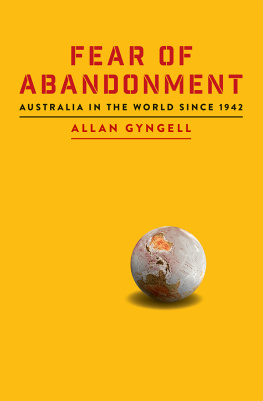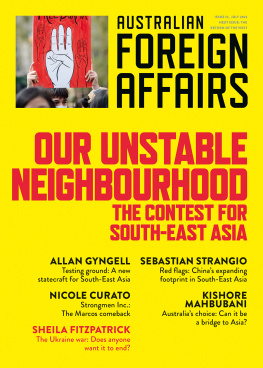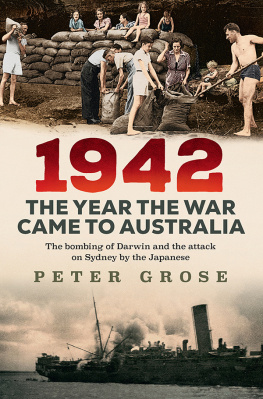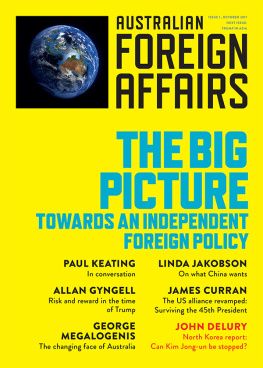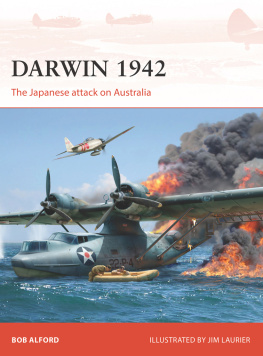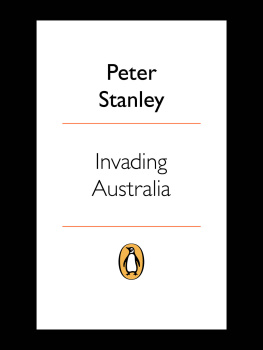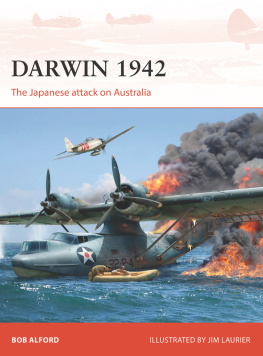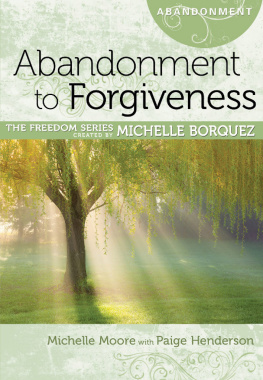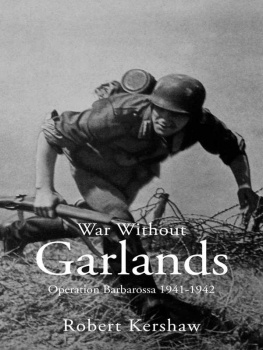Published by La Trobe University Press in conjunction with Black Inc.
Level 1, 221 Drummond Street
Carlton VIC 3053, Australia
www.blackincbooks.com
www.latrobeuniversitypress.com.au
Copyright Allan Gyngell 2017
Allan Gyngell asserts his right to be known as the author of this work.
ALL RIGHTS RESERVED.
No part of this publication may be reproduced, stored in a retrieval system, or transmitted in any form by any means electronic, mechanical, photocopying, recording or otherwise without the prior consent of the publishers.
National Library of Australia Cataloguing-in-Publication entry:
Gyngell, Allan, author.
Fear of abandonment: Australia in the world since 1942 / Allan Gyngell.
9781863959186 (paperback)
9781925435559 (ebook)
AustraliaForeign relations21st century.
AustraliaForeign relations administrationHistory.
Cover design by Peter Long
Text design and typesetting by Tristan Main
INTRODUCTION
US AND THEM
If we plod along with only the feeble lantern of our vision of contemporary events, unaided by history, we see to be sure a little of the past just under our feet; but the shadows are grotesque and misleading, the darkness closes in again behind us as we move along, and none can be sure of direction or of pace or of the trueness of action.
GEORGE F. KENNAN, 1957
T he story Australians know best of their countrys engagement with the world is one of wars and battles. From Gallipoli and the Western Front, to Kokoda and Vietnam, right through to Afghanistan, war is central to Australians image of their nation in the world. There is no denying the importance of that history or the valour of those involved, but by focusing on it Australians have neglected another story one that has been even more important in building their world. This is a much quieter chronicle, of statecraft and diplomacy; of the creation of the institutions that frame Australias international activities, from the US alliance to the United Nations; and of how the country learnt to live in a region with very different neighbours and to project its own interests and values onto a wider international stage.
This process foreign policy has shaped, sometimes decisively, the world Australians now know: a world in which Australia is a close ally of the United States and where Japan is seen as a good friend, where Australians find easy familiarity in Singapore or Bali, in which Australia seeks United Nations Security Council help to investigate a plane shot down over Ukraine, and where it is unsurprising that Australia should host a meeting of leaders from the worlds twenty largest economies.
The story of foreign policy the way Australians and their governments have thought about, and acted in, the world since the end of World War II is the subject of this book.
Historians debate exactly when and how Australia developed a foreign policy, and that debate forms a background to the first chapter. But however you look at it, the indisputable moment when Australia had full sovereignty over its international policy was when its parliament said it did, in 1942, by ratifying the Statute of Westminster legislation enacted by the British parliament in 1931 that established beyond debate the international standing of the overseas dominions of the British Crown. So it is in 1942 that our story begins.
Of course, not even the greatest of superpowers can determine outcomes in the world by itself. Foreign policy always involves others. The world is a messy, contingent place and foreign policy is an unceasing cycle of action and reaction in response to an inconceivably complex set of variables. For most of the period covered by this book, the others we are talking about were foreign governments, and Australia learnt to deal with them in traditional ways, by setting up a diplomatic service and working in newly developed forums such as the United Nations. Towards the end of the twentieth century, driven by the technological changes of the information revolution, a new element was added to the mix the groups international relations scholars call non-state actors. By attacking the Pentagon and New Yorks Twin Towers in 2001, a small group of Islamist terrorists moved armies and changed the national security priorities of governments all over the world. These groups, too, form part of the story of Australian foreign policy.
Foreign policy is not just a governments response to events outside its borders, but also an effort to anticipate and shape them in ways that advance the countrys interests and values. Together with diplomacy, which is its operating system, foreign policy requires imagination and effort. First, a government has to determine how it wants the world to look a vision then what it can do to bring about that outcome a strategy and finally tactics how to use skilful advocacy and negotiation to bring it into being.
Contrary to its favourite myth about itself, Australia is an old country: old geologically, old in terms of the civilisation of its original inhabitants, and an old democracy. But it is surprisingly young at foreign policy. There is something about foreign policy that has always made Australians a little uncomfortable.
Thats not to say Australia hasnt developed effective, in some ways distinctive, traditions of diplomacy. It has had creative foreign ministers and made its mark on the world. But the ceaselessly interactive processes of foreign policy, the adjustments and compromises it requires, the close attention it demands, its backroom dimensions, its unheroic nature: these dont sit easily with Australians. In part, that is why defence and security policy has been much more central to their sense of themselves in the world. But if, as the great nineteenth-century Prussian strategic thinker Carl von Clausewitz wrote, war is the continuation of politics by other means, then foreign policy is the politics whose failure means conflict. Its success matters deeply.
This book is not intended to be and could not be an account of Australias response to everything that happened in the world over the past seventy years. For a country with Australias population size and economic weight, located where it is, many important international issues will arise to which its responses will be essentially rhetorical. It can express its views, throw what weight it has behind one side or the other in debates in the United Nations or elsewhere, alleviate some suffering through aid, but it will not be able to shape the results in any significant way. The unravelling of the Balkans in the 1990s and the collapse of Syria twenty years later are just two of many examples.
Theres nothing wrong with declaratory and symbolic policy. It helps shape global values and is important to the way a country thinks about itself. But this book is mostly concerned with those areas of the world and issues on the international agenda that have required complex policy responses from Australia, and where its actions have shaped outcomes. For obvious reasons of where Australias interests lie and where its influence can be most effectively deployed, this is often Asia and the Pacific. But not always. We will look at the role of the Fraser and Hawke governments in ending apartheid in South Africa, and of Gareth Evans in securing passage of a major international arms control initiative, the Chemical Weapons Convention. Inevitably, though, Australian activities in many parts of the world can receive only cursory coverage in a book of this length.


